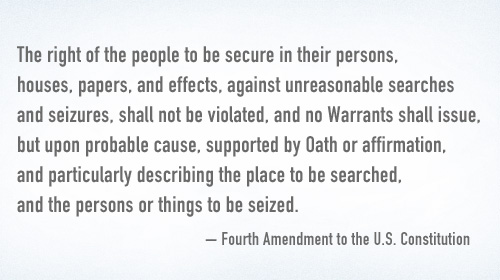
Where would you expect to find half-a-dozen patrol cars on New Year's Eve? In Bakersfield, California, ranked in the highest ten percent of the most violent cities in America, you'd hope they'd be responding to incidents of violence and preventing murder, rape, and other violent crime. At the very least, you'd expect them to be patrolling for drunk drivers.
Not so. At least not when it comes to prioritizing such matters as "barking dogs." On December 31, 2012, the Kern County Sheriff's Department deployed six police cars and numerous officers at the behest of a resident who called for help from, well, the sounds of two small barking dogs. Her neighbor, Ruth Montaño, a Latina farm-worker, and her three American children owned the dogs.
As Ruth poignantly describes in her own words in this video, when she and her children returned to their trailer around 10pm that night from the grocery store, officers approached her and began shouting and cursing at her. They said they were responding to a neighbor's complaint that her two small dogs were being noisy. Her dogs, a Chihuahua and a Shih Tzu, were enclosed in a fenced-in area outside her trailer. But when Ruth asked the officers what the dogs had done, they refused to answer. When she offered to put the dogs inside, they ignored her.
https://www.youtube.com/watch?v=5T-o0sKe4kA
Instead, the officers questioned her about how long she had been in the United States and insulted her for not speaking English well. They called her and her children garbage and threatened to arrest her. When she pled with them to tell her why they were interrogating her, they again refused to say, growing even more hostile and agitated, and aggressively placing her under arrest. As they walked her over to the patrol car, her children cried and pled for them not to take their mommy. One officer violently bashed Ruth's head into the side of the patrol car, before forcing her into the vehicle.
The dogs, meanwhile, remained outside, untouched. Barking.
The officers claim that they arrested Ruth for "having animals making excessive noise" and for resisting arrest. But, under Kern County law, "having animals making excessive noise" is neither an arrestable offense, nor is it within the authority of the Sheriff's Department to investigate – rather it is an issue for Animal Control.
Ruth believes she was arrested for one sole reason: racism. We think she's right. If not, what's one other plausible explanation for what happened to her? Anti-immigrant sentiment runs high in places like Bakersfield, and law enforcement officers often target Latino residents. Officers know that all they have to do is make an arrest – whether lawful or not – to turn any suspected "illegal immigrant" from today's contributing resident into tomorrow's deportee.
This is because under the federal government's disastrous Secure Communities (S-Comm) program every person who is arrested is immediately screened and identified by Immigration and Customs Enforcement (ICE) for possible deportation, regardless of their charges.
Dragnet federal immigration enforcement programs, like S-Comm, increasingly are to blame for abusive and unlawful police conduct that target Latinos, violate their civil rights, and undermine public safety. The program encourages police to take action based on race, language, and perceived immigration status – knowing that any arrest could lead to deportation – rather than doing their jobs to ferret out threats to public safety.
Stories like Ruth's only reinforce the urgent need for California to finally adopt the TRUST Act, a bill that would ensure that the police can no longer detain for ICE people like Ruth who have done no harm to our communities. And it demonstrates the need for Congress to pass common-sense immigration reform to ensure that residents like Ruth are put on a road to citizenship, not a highway to family separation.
Learn more about immigration and customs enforcement and other civil liberty issues: Sign up for breaking news alerts, follow us on Twitter, and like us on Facebook.

